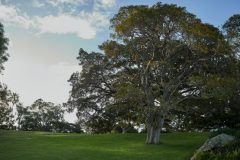As you begin to look forward at the Winter semester, look no further than the Philosophy Winter 2024 Seminars!
———————————————————————
PHIL 4220 – Animal Consciousness
Dr. Myrto Mylopoulos
Mondays, 11:30 – 2:30pm

In this seminar, we will examine the topic of animal consciousness through the lens of contemporary philosophical work, drawing on insights from empirical research and findings where relevant. Questions addressed will include:
- What is the best approach to studying animal consciousness?
- What, if anything, can major theories of consciousness tell us about animal consciousness?
- Which animals are conscious?
- What is the moral significance of consciousness?
———————————————————————
PHIL 4320 – Ethics of Social Movements
Dr. Marie-Pier Lemay
Tuesdays, 2:30 – 5:30pm

This course explores contemporary ethical debates and theories on social movements. In a 2016 article published in Philosophy Compass, Avery Kolers deplored the lack of attention philosophers have devoted to social movements. Since then, there has unquestionably been a resurgence of writings in ethics and adjacent philosophical fields on normative insights and theories developed from cases of social movements. In this course, we will explore this burgeoning field together. We will examine philosophers and thinkers who develop normative insights and theories from empirical cases. Of course, civil disobedience and violence are on our agenda, but we will also explore the social ontology of groups, the epistemic dimensions of group representation, the ethics of deference, the morality of ecotage, and insights gained from reading Indigenous thinkers on these questions.
PHIL 4005 – Causation and Freedom in Early Modern Philosophy
Dr. Melissa Frankel
Tuesdays, 11:35-14:25

What are laws of nature? What is the relationship between science and metaphysics? In a law-governed world, is there any room for human freedom? What about a law-governed world created and conserved by a divine Being – can humans be free in such a world, and if so, in what sense? In this seminar we will look at early modern approaches to answering these and related questions about causation and freedom. We will be consulting primary texts from such philosophers as Descartes, Malebranche, Locke, and Leibniz, among others.